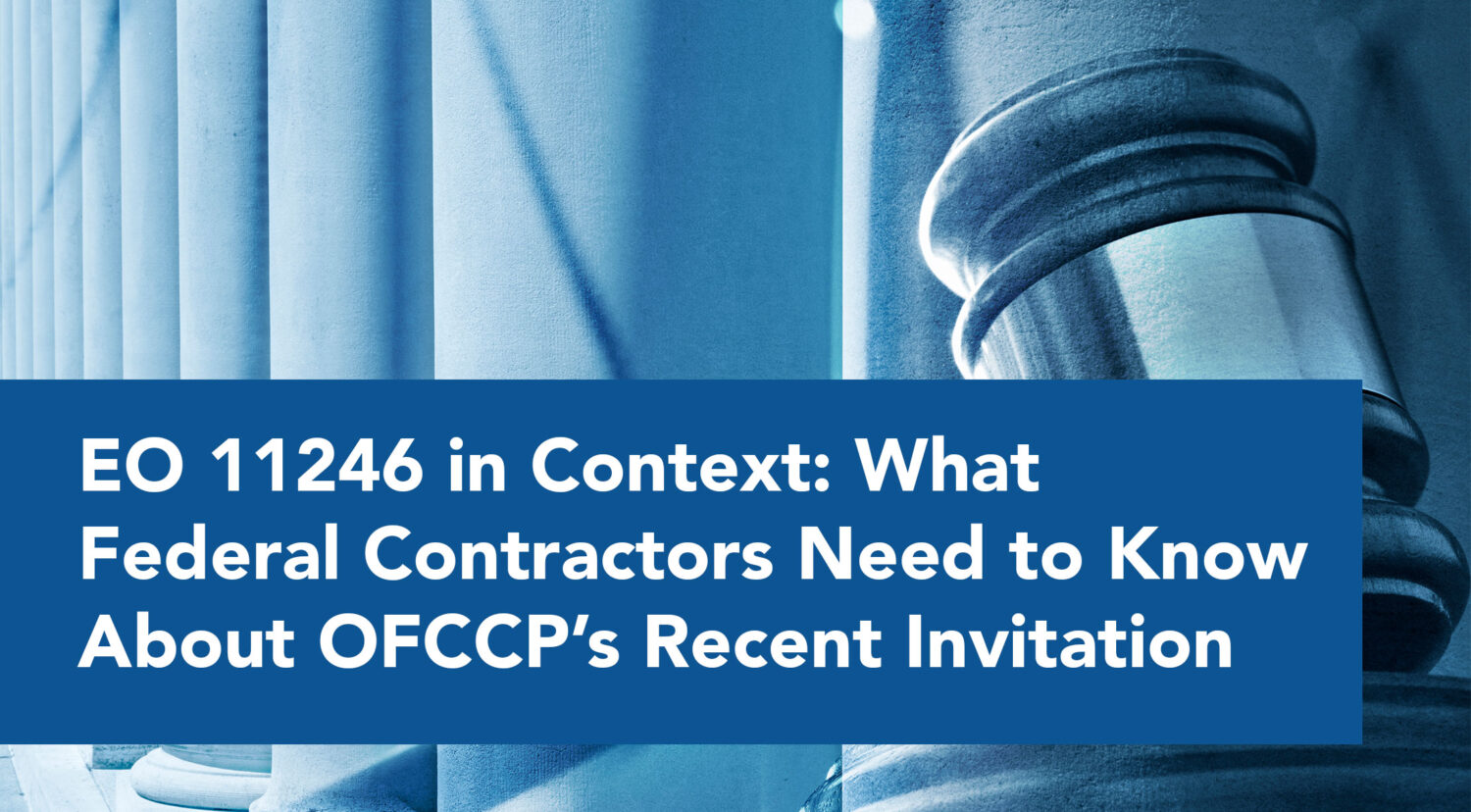

Over the past few years the number of equal opportunity employment complaints received by the U.S. Department of Labor – Office of Federal Contracts Compliance Program (OFCCP) has increased. Between 2015 to 2017, the OFCCP received an average of 648 complaints per year. However, in 2018, the number of complaints the OFCCP received more than doubled to reach 1,418. So far this year the OFCCP has received 349 complaints. As a result of this increase, last year the OFCCP processed 68 percent more complaints than the year prior.
The OFCCP is tasked with enforcing laws that prohibit federal contractors and subcontractors from discriminating on the basis of race, color, religion, sex, sexual orientation, gender identity, national origin, disability or status as a protected veteran. As the number of complaints has increased the office has worked to change the way investigations are handled and streamline their operations. Over the last year, the federal government has released a number of directives designed to make the compliance reviews process easier and more efficient for both federal contractors and the OFCCP.
Among those new changes is a new policy directive to establish a voluntary compliance program for high-performing federal contractors. The recently announced DOL program “The Voluntary Enterprise-wide Review Program” (VERP) provides meaningful incentives for federal contractor participants and to work collaboratively with the OFCCP through individualized compliance assistance from OFCCP for full compliance. Moreover, the program is aimed at helping contractors better prepare for on-site compliance evaluations. The self-audit program, announced in February, will help contractors ensure they are meeting federal requirements related to diversity and discrimination when it comes to dealing with employees and job applicants.
To kick the program off in October 2019, a small selection of federal contractors will have the opportunity to self-audit their compliance requirements of workplace anti-discrimination rules and affirmative action plans. Admittance into the Voluntary Enterprise-Wide Review Program means contractors won’t be subject to on-site visits related to compliance evaluations for three to five years.
Here are three elements you need to know about the program:
Program Details:
VERP provides contractors with an alternative to the OFCCP’s establishment-based compliance evaluations. In addition to streamlining the compliance process, the program is also designed to recognize and reward those contractors that go above and beyond in their compliance, diversity and inclusion efforts. The program is entirely voluntary.
As part of the program, contractors will be removed from the OFCCP’s neutral scheduling process for the duration of the agreement. This is conditional on the contractor adhering to the terms of the program agreement which requires program participants to maintain a workforce free of discrimination or other violations. Contractors will be expected to provide periodic reports and information to the OFCCP to verify their compliance efforts. The OFCCP has the right to conduct compliance investigations of contractors participating in the program and can terminate the agreement if violations are discovered.
Application Process:
To participate in the program, contractors must demonstrate adherence to the established criteria. Contractors must not only meet basic compliance requirements but also demonstrate a commitment to equal employment opportunity programs on a corporate‐wide basis.
Contractors can start applying to the program at the beginning of fiscal year 2020 (October 1, 2019). As part of the application process, the OFCCP will conduct compliance reviews of both the contractor’s headquarters and a sampling of the contractor’s other locations.
Applicants who do not qualify for the program will be returned to the pool of contractors that the OFCCP may schedule for compliance evaluations through a neutral selection process. However, the OFCCP will not automatically place rejected applicants on a scheduling list.
Contractor tiers:
Accepted applicants will be categorized into two tiers of contractors. The top tier is reserved for top‐performing contractors who have implemented corporate‐wide diversity and inclusion programs that can serve as a model for others. These contractors are admitted to the program on a five-year basis. At the end of the period top-tier contractor will be reevaluated.
The second tier is reserved for those contractors who are in compliance but not quite at the top tier level. These contractors will be given the tools and assistance (individualized technical assistance) they need to improve and become top contractors. Contractors in the second tier will be able to stay in the program for three years.





